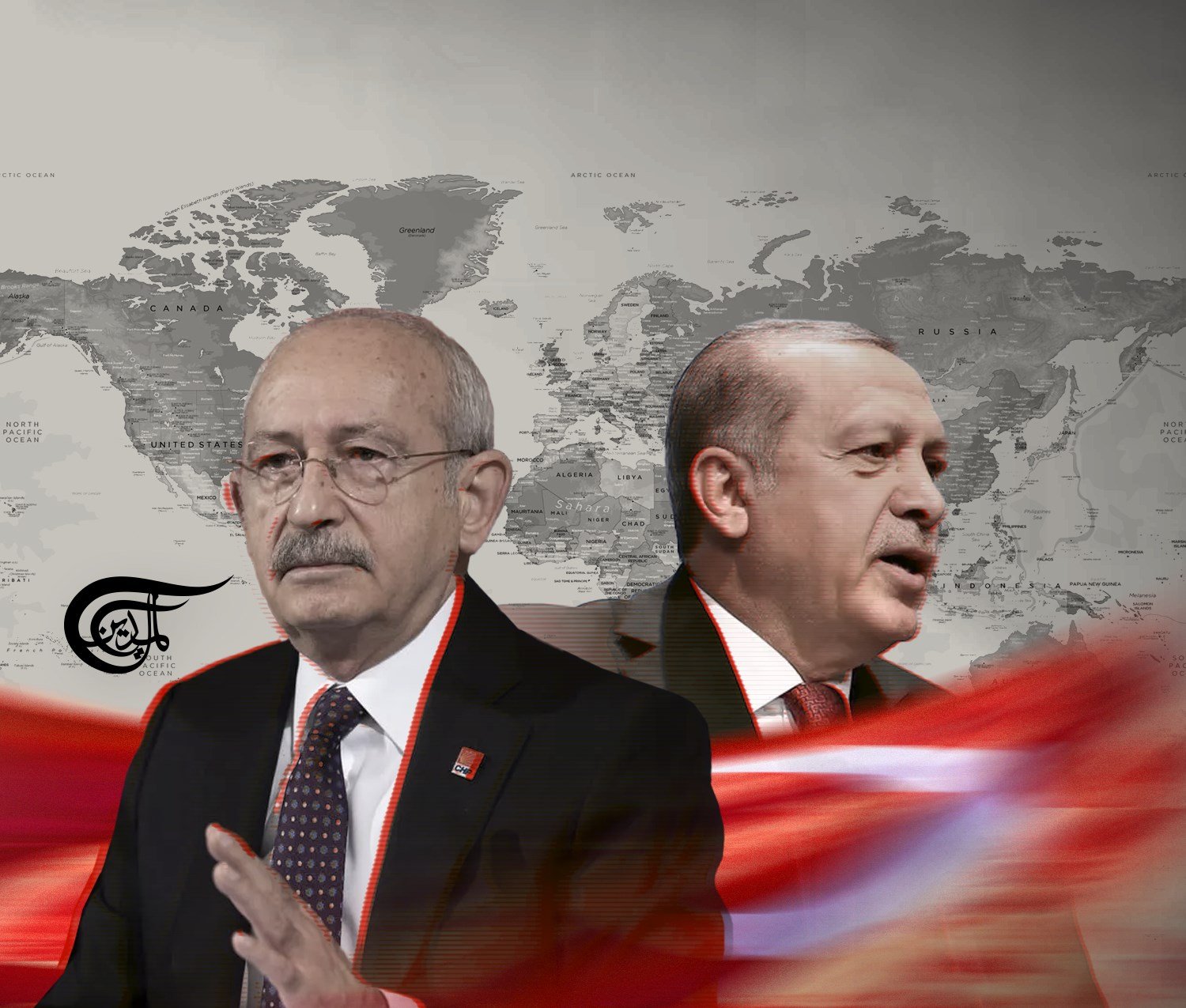Unconcerned and unapprehensive
Had the Turkish elections taken place before the major U-turns in Turkish foreign policy of the past two years, the Arab capitals' stances would have been governed by wariness and apprehension.
A few days ahead of the 'elections of the century' in Turkey, influential Arab capitals do not seem overly concerned and apprehensive about the results.
If the elections had taken place before the major U-turns in Turkish foreign policy of the past two years, these capitals' stances would be governed by wariness and apprehension. Times have changed. The bitter foes of the past have become close friends or allies-in-making.
The region's capitals, Arab and non-Arab alike, are not equally close to the two sides of the elections. There are definitely those who want to see Erdogan leave the presidential palace in Ankara. Damascus may want this most of all, despite the major strides made on the Syrian/Turkish reconciliation path. This progress could not have been achieved without the efforts of its main allies, Moscow and Tehran. Although both have differed with Erdogan, his government, and his ruling party on several occasions, they undoubtedly prefer him over an opposition that does not hide its pro-NATO leanings.
The difference between Damascus' perspective toward Turkey and that of its allies is an open secret. Damascus, which has maintained its relationship with Turkish opposition groups throughout the crisis, knows full well that it has an opportunity to reach an advantageous, guaranteed agreement with Turkey that is far preferable to the 'promises of reconciliation and normalization' that Erdogan has offered Putin and Raisi. Damascus rightfully fears these promises will fare no better than the many others the Turkish President had committed himself and his country to, which quickly evaporated even before the ink dried. But the times have changed, and the Turkey of 2023 is not the Turkey of 2013, nor is the Syria of 2023 the Syria of 2013.
It is highly likely that the Turkish/Syrian reconciliation process will continue to move forward, even if Erdogan and his party win the upcoming elections. But this path is certain to become more difficult and complicated. Extensive, arduous efforts will be needed to overcome the obstacles and barriers in its way. In contrast, a government formed by the current opposition would be more willing and inclined to abandon many of the cards that Erdogan and his ruling party have always used to maintain a strong foothold and influence in Syria.
In this sense, Damascus appears to be justified in its reluctance to fast-track the reconciliation process. Differing interests and perspectives produce divergent stances, even among friends and allies. Al-Assad has succeeded in postponing the proposed presidential summit with Erdogan until after the elections, without running the risk of angering his two allies and dismissing their fears and concerns, and while maintaining direct contact with Ankara at lower political, security, and military levels.
The Gulf states have turned the page on the battle of the axes and proxy wars with Turkey. Today, they appear to be more inclined to support Erdogan and his regime. Otherwise, Saudi Arabia would not have decided to deposit $5 billion in the Turkish central bank to bolster the lira months ahead of the election, nor would the UAE have injected more investments into the Turkish economy, and Qatar would not have harnessed all of its efforts to back its trusted ally in times of conflict and reconciliation alike.
The shifts in the Gulf states' positions, especially Saudi Arabia's, now place them closer to Erdogan than his opponents at home, who it is feared will become tools of pressure used by Washington in service of its strategic priorities in the region.
Cairo has completed the hard parts of the reconciliation process with Ankara, while Amman maintains a more than normal relationship with it, despite the disputes and reservations it has raised in the past decade. But both countries are closer to the six-way opposition movement than to Erdogan and his party, even if they do not announce it. They undoubtedly believe that tying up the loose ends of their old disputes with Ankara will be an easier and smoother process with the Ataturkists than with the Islamists.
On another note, despite the belief that Turkey sides with Hamas in the inter-Palestinian split, Ankara has maintained close ties with the PA, the PLO, and the presidency. Moreover, its relationship with "Israel" fluctuates between normalization and its implications, on the one hand, and tension, on the other.
In any case, Turkey's stances toward the Palestinian cause are still much better than a wide range of Arab state positions. But this may change if Erdogan and his party shift from the ruling camp to the opposition.
The West/NATO in general, and "Israel" in particular, have become highly proficient at the game of 'containing' Erdogan and softening the rough edges of his positions and policies. But the man has, in turn, mastered the game of 'tense alliance' with this bloc. He has maintained outward 'independence' in his positions and priorities and adopted policies that do not serve the West regarding sensitive issues like Russia, Iran, the EastMed Gas Forum, the Cyprus crisis, and the Azerbaijani/Armenian conflict. He has also played the Syrian refugee card, threatening Europe's borders.
He has emerged as a competitor in arenas once monopolized by old colonial powers, such as Africa. He has strengthened the independence of his foreign policy through an attested economic boom (before the recent recession) and through military and defense advancements that are concerning to friends and foes alike.
Such a man's return to power is not welcome. The West on both sides of the Atlantic makes no secret of favoring the opposition, and "Israel" still reminisces about the 'good old days' when its relations with Turkey verged on a strategic alliance. The concern voiced by the West, especially Europeans, regarding democracy and human rights issues in Turkey is hypocritical rhetoric that serves no purpose but to disguise the real motives for the West's concern about Turkey under the ruling Justice and Development Party (AKP).
In short, different views of the Turkish elections today are largely governed by more rational standards largely detached from the emotional sentiments that prevailed during the time of the battle of the axes, proxy wars, and intense polarization in the region. Even Islamists, Erdogan's most loyal allies, are no longer certain that they have a foothold in Turkey in the wake of the recent reconciliations and shifts. Friends and foes alike have become cognizant of how they must navigate their relationships with Ankara, especially during the past two years of transition in Turkish politics.
Each party has its own fears and wagers, whether Erdogan returns to power in Turkey or fails to do so for the first time in two decades, especially given predictions that the winds of change in Turkey have affected not only the ruling party but also the opposition, which are not expected to be capable of erasing Erdogan's mark on foreign policy smoothly or easily in the near future.
The most significant change that will sweep Turkey and cause a political earthquake in the country – even stronger than the powerful earthquake that struck it a few months ago – will be centered on domestic policy. A victory for the opposition will mean a long, heavy, sweeping reckoning with Erdoganism. Since Ataturk, no other leader or party has left such a huge impact as Erdogan and his party on Turkey's political system, social structure, balances, and power relations between different components and institutions.
Local conflicts will center on this in particular, and this is where the most interesting and important developments will unfold.

 Oraib Al Rantawi
Oraib Al Rantawi
 7 Min Read
7 Min Read












